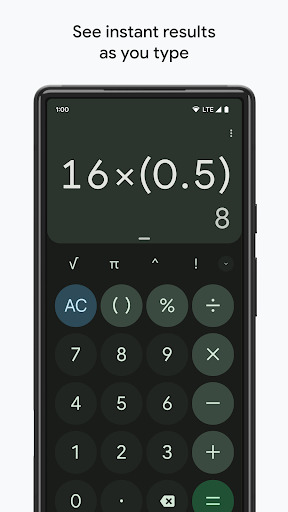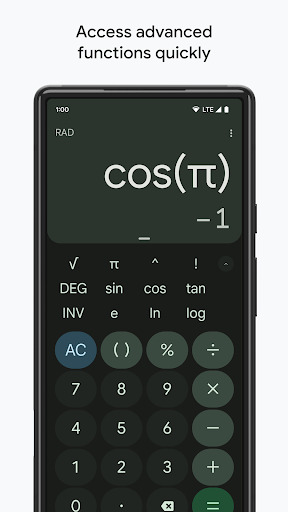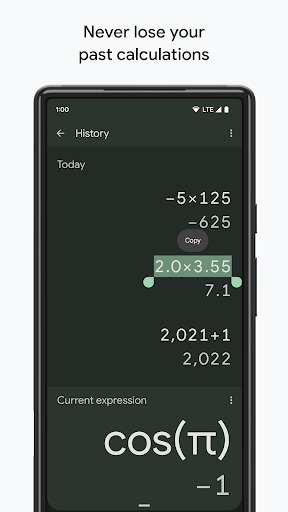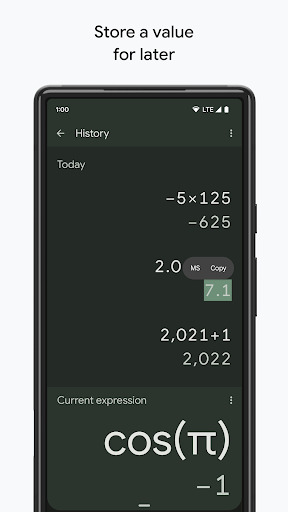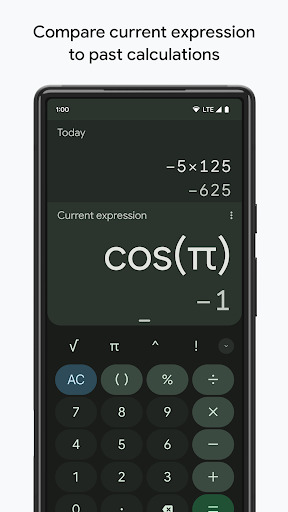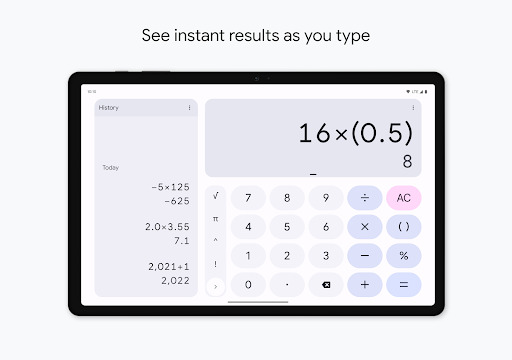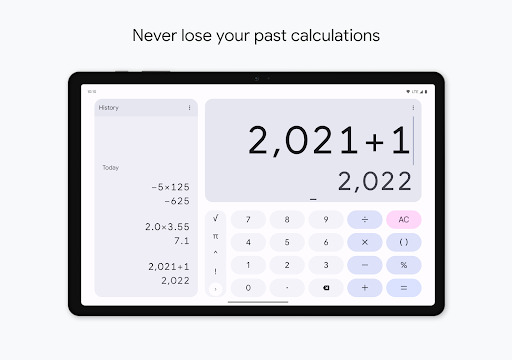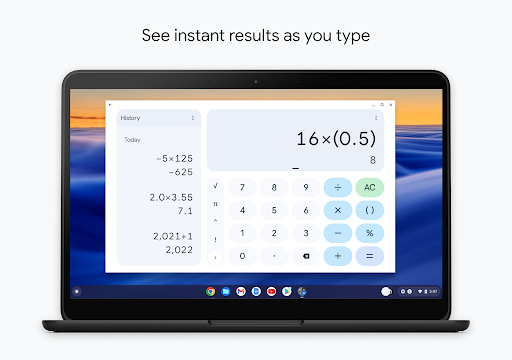Popular Now
1. The Evolution of Calculators
The history of calculators traces back to early counting devices like the abacus. Over time, calculators have evolved from mechanical devices to sophisticated electronic tools. Early calculators were limited in function and required manual operation, but technological advancements have led to the development of calculators with extensive capabilities and user-friendly interfaces. Today, calculators are available in various forms, including basic models for simple arithmetic, scientific calculators for complex equations, and graphing calculators for visualizing mathematical functions. This evolution reflects the growing need for versatile tools that cater to a wide range of users and applications.2. Types of Calculators and Their Applications
Calculators come in several types, each designed to serve specific functions and user needs. Understanding these types can help you choose the right calculator for your purposes:Basic Calculators
Basic calculators are designed for simple arithmetic operations such as addition, subtraction, multiplication, and division. They are ideal for everyday tasks and are commonly used in schools, offices, and homes. Basic calculators are straightforward, with a minimalistic design and essential functions.Scientific Calculators
Scientific calculators offer advanced functions needed for higher-level mathematics and science. These calculators include functions for trigonometry, logarithms, and exponents. They are widely used by students and professionals in fields such as engineering, physics, and mathematics.Graphing Calculators
Graphing calculators are equipped with the ability to plot graphs and visualize mathematical functions. They support complex calculations and provide graphical representations of equations, making them valuable tools for advanced mathematics, calculus, and statistics.Financial Calculators
Financial calculators are tailored for financial calculations such as interest rates, loan amortization, and investment analysis. They are commonly used by financial analysts, accountants, and anyone involved in managing personal finances or business budgets.3. Key Features to Consider
When selecting a calculator, several key features can impact its functionality and suitability for your needs:Display Type and Size
The display type and size are important for readability and ease of use. Calculators with larger displays and high-resolution screens provide better visibility and can display multiple lines of calculations. Consider whether you need a basic digital display or a more advanced graphical interface.Functionality
Different calculators offer varying levels of functionality. Assess the functions you need, such as basic arithmetic, scientific functions, or graphing capabilities. Ensure the calculator you choose includes the features required for your specific applications.Power Source
Calculators can be powered by batteries, solar energy, or a combination of both. Power source considerations affect the calculator’s convenience and longevity. Battery-powered calculators may require periodic replacements, while solar-powered models offer continuous use in well-lit environments.Build Quality and Durability
The build quality and durability of a calculator are important for ensuring long-term use. Look for calculators made from robust materials and those with a solid construction to withstand regular use and accidental drops.4. Popular Calculator Models and Their Reviews
Several calculator models stand out in the market due to their performance and features. Here are some popular options and their reviews:Casio fx-991EX
The Casio fx-991EX is a highly regarded scientific calculator known for its advanced functions and user-friendly design. It features a high-resolution display, extensive mathematical functions, and a durable build. Users appreciate its reliability and ease of use for complex calculations.Texas Instruments TI-84 Plus
The Texas Instruments TI-84 Plus is a popular graphing calculator favored by students and professionals. It offers powerful graphing capabilities, a large display, and a range of mathematical functions. The TI-84 Plus is praised for its versatility and extensive functionality in educational settings.HP 12C Financial Calculator
The HP 12C Financial Calculator is a classic model designed for financial calculations. It provides functions for time value of money, loan amortization, and investment analysis. Users value its precision and reliability in handling financial computations.5. Pros and Cons of Different Calculator Types
Each type of calculator offers distinct advantages and drawbacks. Here’s a summary of the pros and cons:Basic Calculators
Pros: Simple to use, affordable, and sufficient for everyday calculations. Cons: Limited functionality for advanced mathematical operations.Scientific Calculators
Pros: Versatile functions for advanced mathematics and science, suitable for educational and professional use. Cons: Can be more complex to operate, higher cost compared to basic calculators.Graphing Calculators
Pros: Ability to plot graphs and visualize equations, essential for higher-level mathematics and calculus. Cons: Higher price, larger size, and steeper learning curve.Financial Calculators
Pros: Specialized functions for financial analysis, useful for managing investments and personal finances. Cons: Limited to financial calculations, higher cost compared to basic models.6. Choosing the Right Calculator for Your Needs
Selecting the right calculator depends on your specific requirements and intended use. Here are some factors to consider when making your choice:Identify Your Needs
Determine the primary functions you need from a calculator. Whether you require basic arithmetic, scientific functions, graphing capabilities, or financial calculations will influence your choice of model. Assessing your needs helps narrow down the options to those that best suit your requirements.Budget Considerations
Consider your budget when choosing a calculator. Basic models are generally affordable, while advanced calculators with specialized functions may be more expensive. Balancing your budget with the features you need ensures you get the best value for your investment.Ease of Use
Choose a calculator that matches your comfort level with technology and complexity. Some calculators come with extensive features but may be challenging for beginners. Opt for a model with a user-friendly interface and intuitive controls if ease of use is a priority.7. Calculator Maintenance and Care
Regular Cleaning
Keep your calculator clean by wiping the screen and buttons with a soft, dry cloth. Avoid using abrasive materials or cleaning agents that could damage the display or internal components.Battery Care
If your calculator is battery-operated, replace the batteries as needed and ensure they are inserted correctly. For solar-powered calculators, place them in well-lit areas to maintain optimal functionality.Storage
Store your calculator in a protective case or cover to prevent physical damage. Avoid exposing the calculator to extreme temperatures, moisture, or direct sunlight, which could affect its performance.8. Innovations and Future Trends in Calculators
Calculators continue to evolve with advancements in technology. Here are some innovations and future trends to watch for:Integration with Smart Devices
Future calculators may integrate with smart devices and applications, offering enhanced functionality and connectivity. Integration with smartphones and tablets could provide additional features and convenience.Advanced Computational Capabilities
As technology advances, calculators may incorporate more powerful computational capabilities and algorithms. This could lead to improved performance and expanded functionality for complex calculations and data analysis.Eco-Friendly Designs
Innovations in eco-friendly designs may lead to calculators that use sustainable materials and energy-efficient technologies. This aligns with the growing emphasis on environmental sustainability and resource conservation.9. User Reviews and Feedback
User reviews provide valuable insights into the performance and reliability of calculators. Here’s a summary of common feedback:Positive Feedback
Many users appreciate calculators for their accuracy, ease of use, and specific features. Reviews often highlight the reliability of well-known brands and the functionality of advanced models for various applications.Common Issues
Some users report issues such as limited battery life, complex interfaces, or functionality limitations. Addressing these issues can help users make informed decisions and find calculators that meet their expectations. Conclusion Calculators are essential tools that serve a wide range of purposes, from basic arithmetic to complex mathematical operations. Understanding the different types of calculators, their features, and their applications can help you choose the right model for your needs. Whether you’re a student, professional, or casual user, selecting a calculator that aligns with your requirements ensures efficiency and accuracy in your calculations. As technology continues to advance, calculators will likely evolve to offer even more capabilities and integrations, enhancing their value and usability.-
Developer
Google LLC
-
Category
Tools
-
Version
8.4.1 (520193683)
-
Downloads
1B
Pros
👍 1. Efficiency: A calculator application allows for quick and accurate calculations, saving time and effort compared to manual calculations. It enables users to perform complex calculations with ease and helps prevent errors that may occur during manual calculations.
👍 2. Convenience: Calculator applications are easily accessible on various devices, including smartphones and computers. This means users can perform calculations anytime, anywhere, without the need to carry a physical calculator. It is a convenient tool for both personal and professional use.
👍 3. Functionality: Calculator applications offer a wide range of functions beyond basic arithmetic operations, such as scientific calculations, financial calculations, unit conversions, and even graphing capabilities. These additional features make calculator applications versatile and suitable for various fields, including education, finance, science, and engineering.
Cons
👎 1. Limited functionality: While calculators are designed for basic mathematical calculations, they often lack advanced features such as scientific functions, graphing capabilities, or unit conversions. This can be a limitation for users working on more complex calculations or specialized tasks
👎 2. Lack of customization options: Many calculator applications have a fixed layout and limited customization options. Users may not be able to personalize the interface or adjust settings according to their preferences. This could make it challenging for users who have specific requirements or prefer a different layout.
👎 3. Absence of history or memory feature: Some calculator applications do not have a history or memory function. This can be problematic for users who need to recall previous calculations or store intermediate results for further calculations. Without this feature, users might have to write down or manually remember their calculations, which can be inconvenient and time-consuming.
